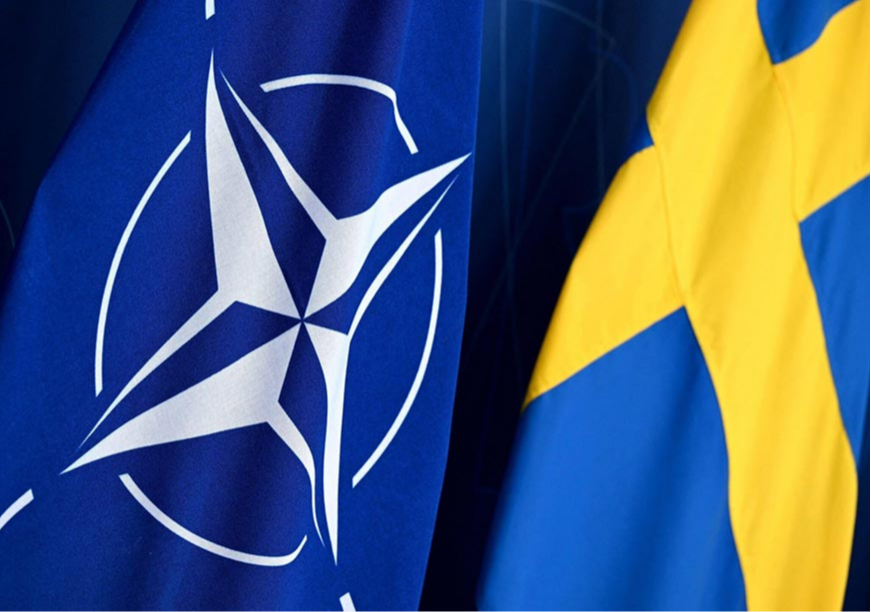
Russia’s war against Ukraine in February 2022 was, in part, meant to prevent an expansion of NATO. Ironically, the very opposite has transpired. The previously 30-member alliance, which expanded to 31 members with Finland’s entry, will soon comprise 32 members.
For over 200 years, Sweden and Finland maintained military neutrality that carried on throughout the two world wars and during the Cold War. The end of the Cold War saw Sweden reduce its defence expenditure and instead focus on global peacekeeping operations. Only in 2021, former Defence Minister, Peter Hultqvist declared that Sweden would never “participate in a process to join NATO”. But Russia’s war marked a huge shift in both countries, leading them to abandon centuries of neutrality and, in May 2022, put in their applications to join NATO.
The end of the Cold War saw Sweden reduce its defence expenditure and instead focus on global peacekeeping operations.
After the last expansion of NATO in 1991 with the accession of Eastern European countries, Finland joined the alliance in April 2023. However, Sweden’s accession has taken longer with hurdles along the way, given that NATO decision-making operates through consensus between its member states.
Sweden gets the green light
The first obstacle was Türkiye, which delayed Sweden’s ratification on the basis of alleged Swedish support towards Kurdish militant organisations such as the Kurdistan Workers’ Party (KPP), designated by the European Union (EU) as a terrorist organisation, and Sweden’s inability to assuage Turkish security concerns. The Quran burning protests in Sweden, and the delay in the United States’ approval to provide Ankara with F-16 fighter jets, further complicated matters. In June 2023, Sweden adopted tighter anti-terrorism legislation, which led to Ankara’s approval for Sweden’s NATO entry in January 2024.
In addition, Stockholm’s membership was held hostage by Budapest’s whims and familiar obstructionism. An infamous outlier in several EU policy areas, Hungary maintains close ties with Russia and has often opposed EU financial and military support to Ukraine. In this case, Hungary opposed Sweden’s NATO membership as a retaliation towards Swedish criticism of the state of Hungarian democracy under the leadership of Prime Minister Viktor Orban and his nationalist Fidesz party. Orban’s spokesperson Zoltan Kovacs accused Swedish officials of sitting on a “crumbling throne of moral superiority”.
An infamous outlier in several EU policy areas, Hungary maintains close ties with Russia and has often opposed EU financial and military support to Ukraine.
After 18 months of wrangling, the Hungarian Parliament finally voted 188 in favour (and 6 against) ratifying Sweden’s NATO membership. The approval came through just as Hungary and Sweden agreed on a defence deal to purchase four Swedish Gripen fighter jets to add to Hungary’s existing Gripen fleet and defence capabilities.
Even preceding its official membership in the alliance, as a NATO partner country, Sweden and NATO have cooperated closely since the 1990s through joint exercises and training, in operations in Afghanistan and elsewhere, and in giving the US access to 17 of its military bases; and since 2014, with Sweden’s status as NATO’s Enhanced Opportunities Partner (EOP). But official membership means that Sweden will have security guarantees and protection under NATO’s Article 5, through which an attack on a member state is viewed as an attack against all.
What Sweden brings to the table
Sweden’s much-awaited entry into the alliance brings with it a host of benefits and capabilities.
Sweden’s entry is an asset given its substantial air force of over 100 fighter jets and robust industrial defence capabilities, particularly as NATO needs more weapons than it is producing in the context of Ukraine support.
Swedish accession strengthens the alliance’s defence on the northern flank. Earning the nickname “NATO lake”, the Baltic Sea—an important transit and shipping route—is now surrounded by NATO countries except Russia. In addition to its crucial geographical location coupled with its ability to boost NATO’s limited naval assets with its world-class submarines, Sweden’s unparalleled hi-tech expertise and cutting-edge technologies could prove crucial in countering NATO’s hybrid threats.
Earning the nickname “NATO lake”, the Baltic Sea—an important transit and shipping route—is now surrounded by NATO countries except Russia.
Sweden’s membership also has implications for enhanced deterrence in the geopolitically significant Arctic region, where all countries except Russia will soon be NATO members, and where external actors such as China are expressing interest given the region’s rich natural resources.
Sweden was already participating in NATO’s Steadfast Defender 2024, “the largest military exercise in Europe since the Cold War”, as well as committing to sending troops to Latvia in 2025 under NATO’s Forward Land Forces (FLF) concept to strengthen deterrence. In its 2024 defence bill, the Swedish government vowed to increase the country’s defence budget by 28 percent and military spending by US$2.4 billion. In addition to increasing its annual recruits to its force from 5,500 to 10,000, Sweden has also resumed mandatory civilian military service, previously scrapped after the Cold War. As NATO Secretary-General Jens Stoltenberg reiterated, “Sweden’s membership makes NATO stronger and us all safer”.
However, critics point to loopholes including Russia’s ability to threaten the region through Kaliningrad or through vulnerable undersea infrastructure such as cables and pipelines that are difficult to monitor.
As NATO Secretary-General Jens Stoltenberg reiterated, “Sweden’s membership makes NATO stronger and us all safer”.
For Kristersson, whose Moderate party has low ratings compared to the Social Democrats and far-right Sweden Democrats, Sweden's entry into NATO is an important political win, especially given domestic challenges that include a rapid increase in gang crimes. The year 2023 witnessed 346 shootings in Sweden, which records the highest gun crime rate in Europe after Albania.
On the other hand, Sweden’s green light comes at a critical moment for the alliance amidst creeping war fatigue in Western capitals; fears of a potential Donald Trump return; difficulties in securing aid packages for Ukraine; and the Israel-Hamas war diverting attention.
For NATO, Sweden’s entry only means great news.
Shairee Malhotra is an Associate Fellow with the Observer Research Foundation.
The views expressed above belong to the author(s). ORF research and analyses now available on Telegram! Click here to access our curated content — blogs, longforms and interviews.




 PREV
PREV


